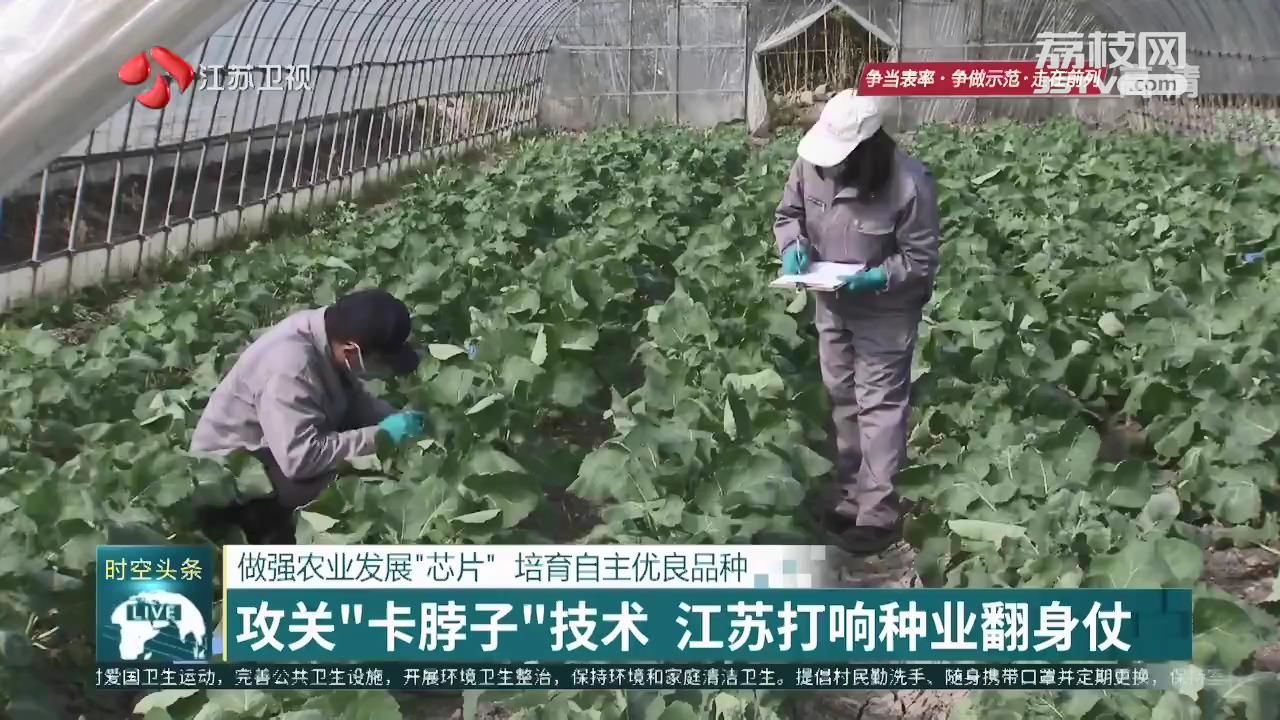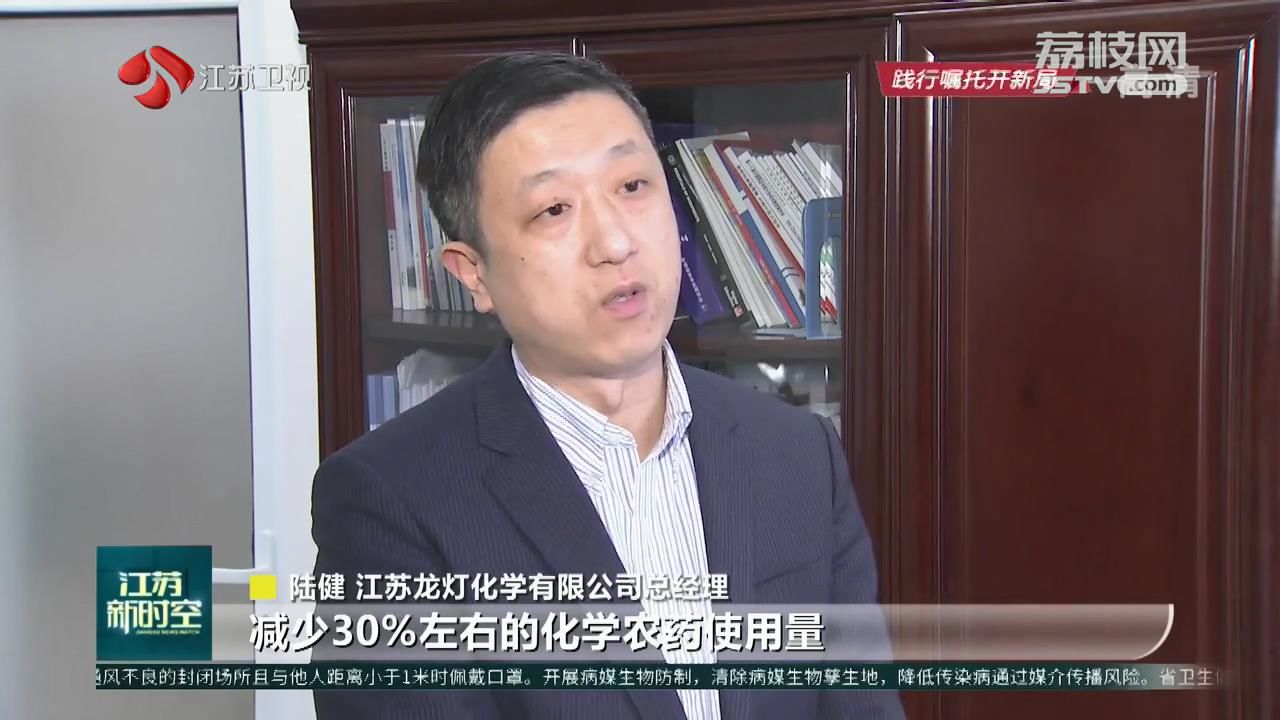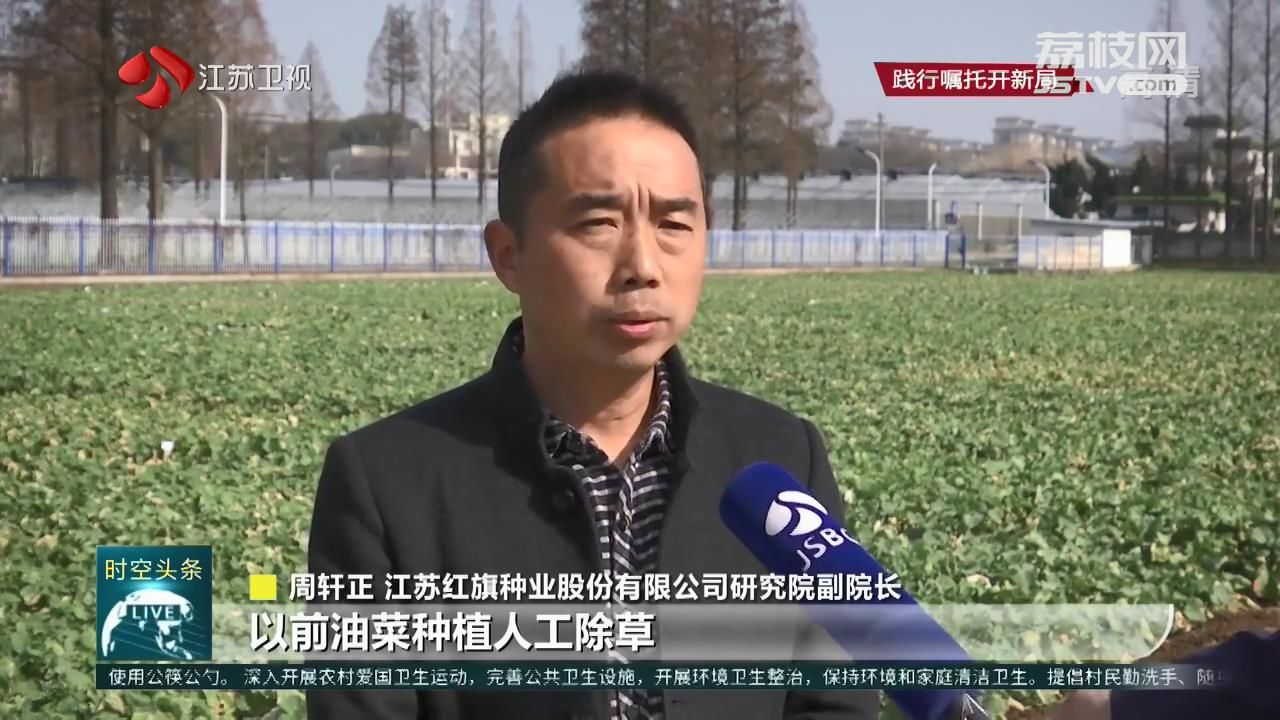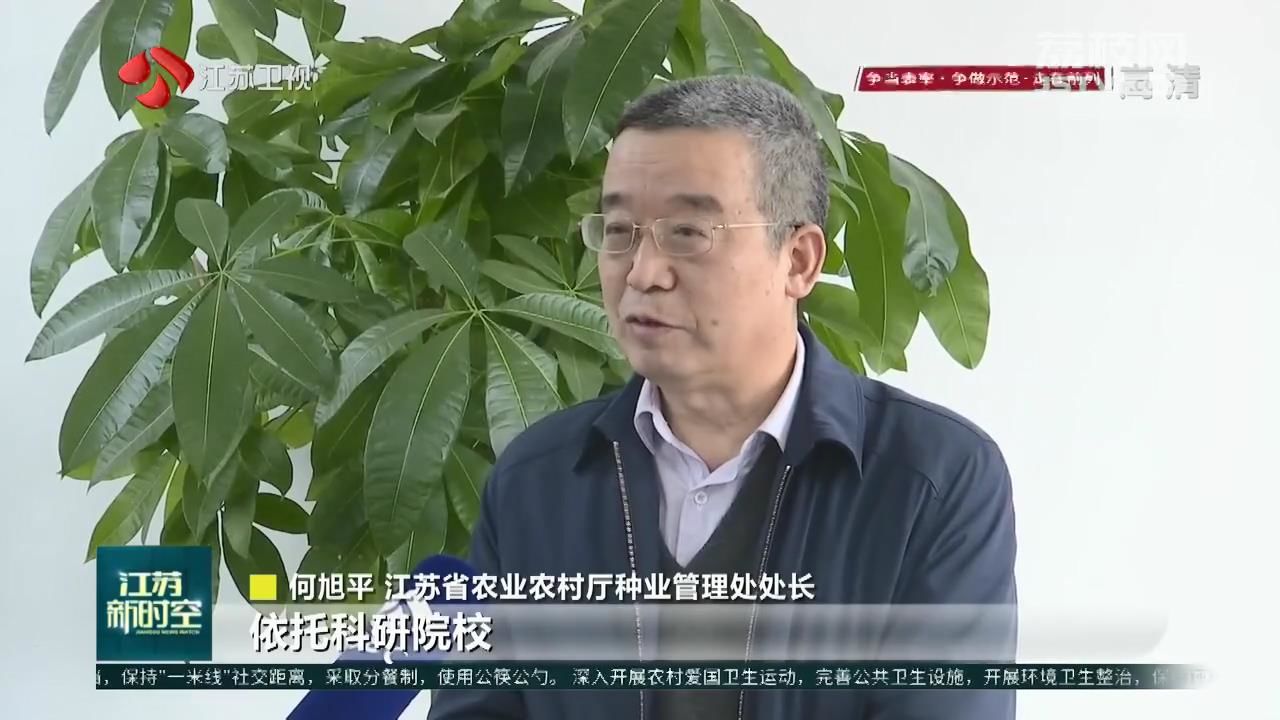“A seed is able to change the world”. Jiangsu is to take the initiative to take the lead and vigorously carry out research on seed cultivating, and to provide strong support to agricultural and rural modernization.

At the beginning of January this year, the Jiangsu Academy of Agricultural Sciences and Jiangsu Longdeng Chemical Co., Ltd. signed the first contract on the nation's non-genetically modified herbicide-resistant rapeseed patent technology transformation. These two days, as the technology transferee, Jiangsu Longdeng Chemical Co., Ltd. is paying close attention to the development and testing of new pesticides based on new technologies. In order to improve the targeting and safety of pesticide, Longdeng not only tested all the samples with obvious efficacy in the field, but also simulated soil ecology in the laboratory to test the effect of the pesticide on soil, water quality, insects and fish.

Lu Jian, General Manager of Jiangsu Longdeng Chemical Co., Ltd.
Our research of the product
really consumed a lot of energy and time
Its cross-contamination control is very very strict
Our cooperation with the Academy of Agricultural Sciences
is still in the initial stage
but the amount of chemical pesticides reduced
by about 30% should be no problem
At the same time because of reduced damage to the soil
farmers will enjoy better harvest
As the reporters learned, that there is currently about 10 million mu of rapeseed planted in the country. The annual output of rapeseed can be processed with 4700 thousand tons of rapeseed oil, accounting for more than half of the country's domestic edible oil. The cultivation of high-quality rapeseed is of great significance to ensure the safety of national grain and oil. However, China has no resistant genes for a long-time rapeseed variety, so domestic rapeseed planting mostly use artificial weeding, which is time-consuming and sees the planting area reduced year by year.
After more than 10 years of research, the Provincial Academy of Agricultural Sciences successfully bred a new herbicide-resistant rapeseed variety, realizing the successful convergence of traits, genes, products and applications and other innovation factors.

Zhou Xuanzheng, Vice President of Research Institute of Jiangsu Hongqi Seed Co., Ltd.
When we planted rapeseed in the past
we had to manual weeding
one laborer covering one acre
at the cost of 80 to 100 yuan
Now new varieties solve the problem of weeding
We spray herbicide manually or by drones
and can save 60 to 70 yuan per acre
This variety can bring more benefits
to the farmers
At present, the Jiangsu Provincial Academy of Agricultural Sciences has shared the product to more than 30 rapeseed research units across the country, helping research teams around the country to develop new resistant rapeseed varieties suitable for local cultivation.
Since the "13th Five-Year Plan," Jiangsu has continuously improved the construction of provincial agricultural germplasm resources protection and utilization platform. The number of state-level seed conservation farms and gene banks has ranked first in China, and the comprehensive competitiveness of seed industry has been significantly advanced. This year, the province will further promote accurate identification, evaluation and innovative utilization of germplasm resources, strengthen basic breeding research and technical tackling. 150 Provincial-level specialized seed and seedling centers will be built, greater importance will be attached to the cultivating of 10 100-billion-yuan-level seed enterprises and the promotion of market subjects.

He Xuping, Director of Seed Industry Management Division, the Department of Agriculture and Rural Affairs of Jiangsu Province
During the 14th Five-Year plan period
especially this year
we will continue to strengthen the
protection and utilization of germplasm resources
with enterprises as the main body
Relying on scientific research institutions
to upgrade our platform and
to complete our technical research tasks
we should turn scientific and technical
achievements into productive forces
to achieve collaboration between production
education and research
and to ensure the supply of our agricultural products
and the increase of farmers’ income





